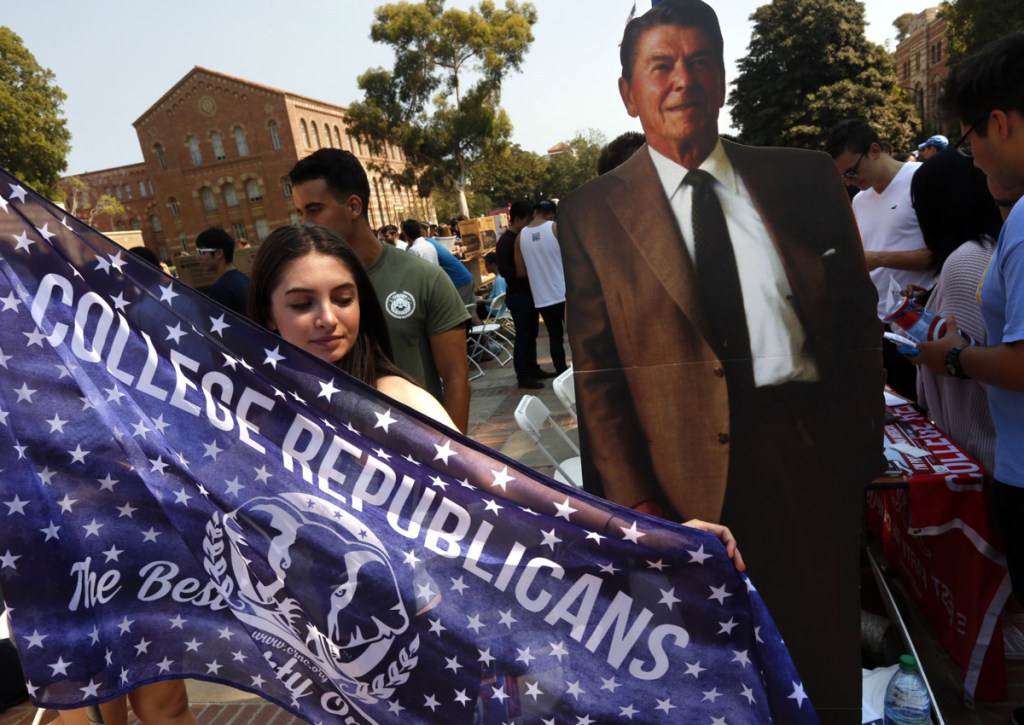WASHINGTON — When President Trump refused to explicitly blame white supremacists for violence in Charlottesville, Virginia, Republican Emmanuel Wilder couldn’t help but take it personally.
“I try not to let my feelings get ahead of the facts, but in this circumstance, it hurts,” the 30-year-old Wilder, a North Carolina-based African-American involved in Republican outreach efforts, told McClatchy at the time.
Five months later, it’s Trump’s Republican Party that is hurting – with young voters, and significantly, with young Republicans like Wilder, who may like Trump’s tax plan but are deeply bothered by his routinely divisive tone.
As the Trump presidency hits the one-year mark, the Republican Party confronts a yawning generational gap that has been exacerbated in recent months by Trump’s incendiary comments on race-related issues and the party’s official support for an accused child molester in Alabama’s Senate race.
Now, as few as a quarter of voters under the age of 30 approve of Trump’s job performance. And among young Republicans, Trump’s approval rating has plummeted 12 percentage points since the spring, according to Harvard’s Institute of Politics poll released last month, down to 66 percent. That’s certainly robust, but well below Trump’s overall Republican approval rating that hovers around 80 percent.
“In a sentence, they are certainly not doing well,” said John Della Volpe, the polling director at the Institute of Politics. “That would be an understatement.”
It’s not that young Republicans are suddenly turning into progressives. To the contrary, those who choose to stay involved on college campuses often rally around Trump, and there is widespread conservative distaste for the protest-happy “resistance” movement.
But interviews with more than a dozen young Republican activists around the country reveal that one year into the Trump era, the party’s longstanding challenges with the next generation of voters are, in many cases, only getting worse.
After Mitt Romney lost to Barack Obama in 2012, the College Republican National Committee authored its own “autopsy” report, warning that the party had a perception problem with young people in part because of “outrageous statements made by errant Republican voices.”
Now, Republicans hold the White House, but some young conservatives fret that the most “outrageous statements” come from the president himself – especially on issues related to race and diversity.
Trump recently expressed a preference for immigrants from countries such as Norway, and demanded,
“Why are we having all these people from shithole countries come here” – a reference, according to reports, to Haiti, El Salvador and Africa.
He later said that “this was not the language used,” but several U.S. senators with knowledge of the meeting stood by the original characterization of his message.
“There are many preconceived notions about Republicans, and hearing words like this … it is attached to the brand,” said Wilder, an activist with the Young Republican National Federation, who said Trump’s comments were shocking and “hard to hear.” “It doesn’t really help in outreach. … Certain situations like this push more Republicans away, push more conservatives away.”
And indeed, according to Della Volpe, in the Harvard IOP survey last month, only 55 percent of Republicans age 18-29 approved of Trump’s handling of race relations, while 42 percent disapproved.
For voters under age 30 overall, a mere 22 percent approved.
Race “seems to be one of the most significant drivers” of Trump’s faltering numbers with young Republicans, Della Volpe said, “with race being the wedge to open up greater divisions in the country.”
Send questions/comments to the editors.



Comments are no longer available on this story